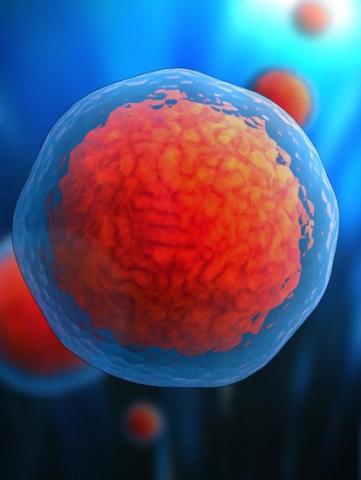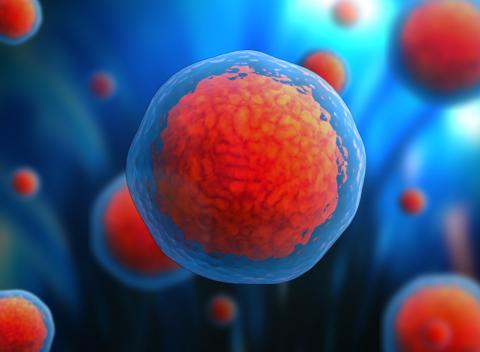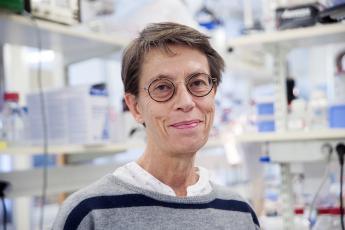

The “Revolutionary Innovations” of Non-Programmed Research
Catherine Jessus, research director at the Paris-Seine Institute of Biology (IPBS), leads the i-Bio Initiative.

Her objective: to structure and promote multidisciplinary research in life sciences around the emergence of a major center for fundamental biology.
How was the i-Bio initiative set up?
During discussions on the evolution of research in biology at the beginning of the 21st century, several members of the IPBS pointed out the need to develop interdisciplinary approaches. A conclusion shared by the strategic reflection group was set up, in parallel, by the Life Sciences Department (UFR).
The convergence of these two reflections led, in early 2019, to the formation of a working group bringing together specialists in biology, physics, computer science, mathematics, and others. For nearly a year, this group developed a project to promote multidisciplinary research in biology within the Sorbonne University Alliance, which was created in early 2020: the i-Bio Initiative.
What is its objective?
After approving the project, the presidency of Sorbonne University wished to add a strategic dimension to it: that of structuring research in life sciences around the emergence of a major center of fundamental biology.
The objective of i-Bio is therefore twofold. On the one hand, to promote research in biology at its intersections with other disciplines. On the other hand, to promote the creation of a competitive, visible and attractive biology center in the heart of the Pierre and Marie campus of Sorbonne University. By merging two existing institutes, the IBPS and the Institut du Fer à Moulin, on a single site, the new entity brought together six research units, some sixty teams and nearly 600 people. These merged institutes now represent a major critical mass of biology research in the Faculty of Science and Engineering.
What are the challenges in terms of research?
With the broadening of the environments being explored, the increase in observation scales, the taking into account of the dynamics of life over time, access to gigantic data sets, these and other questions posed by biologists have moved beyond the strict perimeter of life sciences to other disciplines.
Understanding life now requires us to model and quantify it, and to take into account the laws of physics and chemistry that contribute to its functioning. It also requires manipulating it with the specific tools of bioengineering and pharmacology, taking an interest in its environment, and using human and social sciences to study people, their behavior and their thinking.
Mathematics, computer science, physics, chemistry, engineering, geology, paleontology, ecology, philosophy, history, sociology...no discipline is beyond a connection to the study of the living. An interdisciplinary approach is an intrinsic component of research in biology in the 21st century because it sits at the intersections between biology and other disciplines from which many conceptual and technological innovations are born.
How does this multidisciplinary approach translate into everyday life?
The willingness of scientists alone is not enough to implement interdisciplinary approaches. It is necessary for actors to get to know each other, share their questions, and acquire the concepts and vocabulary specific to each discipline. They must also receive additional support to bring out projects that are generally more risky and difficult to finance.
To meet these needs, i-Bio has set up calls for doctoral projects and multidisciplinary collaborative projects, encouraging risk-taking. We will also welcome an interdisciplinary research team every year and develop actions to further animate the scientific community (such as thematic days or summer schools).
What are the challenges of i-Bio in terms of education?
The challenge is to be able to train biologists who, in parallel to their disciplinary core, are familiar with the concepts, vocabularies and tools of other research fields. The objective is not to make them experts in other specialties, but to enable them to dialogue and conduct joint projects with scientists from other disciplines.
To this end, we have begun to develop an international doctoral program in which we will recruit students with original and international backgrounds every year, during the four years of the Initiative. The first class of 2020 embodies these objectives. A budget will be allocated to them for missions abroad and participation in international conferences.
At the same time, we wish to set up a year of "pre-doc". This year would allow master's students selected for the originality of their career path and their motivation, to rotate among different research teams working on interdisciplinary projects before entering the PhD program. We also wish to create new interdisciplinary master’s programs. But these projects will depend on obtaining additional funding.
What impact can the research carried out within the Initiative have on society?
Biology aims to know and understand life in the broadest sense, and enriches medical, environmental and biotechnological sciences. The research that we develop within the framework of i-Bio essentially produces fundamental knowledge. Accumulating this knowledge and transmitting it contributes to building a society of responsible, conscious and informed people, which is a major societal impact in itself.
Often, fundamental research leads to an applied field. It is from this non-programmed research that the most disruptive and revolutionary innovations emerge. Examples abound, from molecular biology tools, restriction enzymes and Crips-Cas9 scissors, to penicillin. We expect our discoveries to fuel these applied fields of research.
